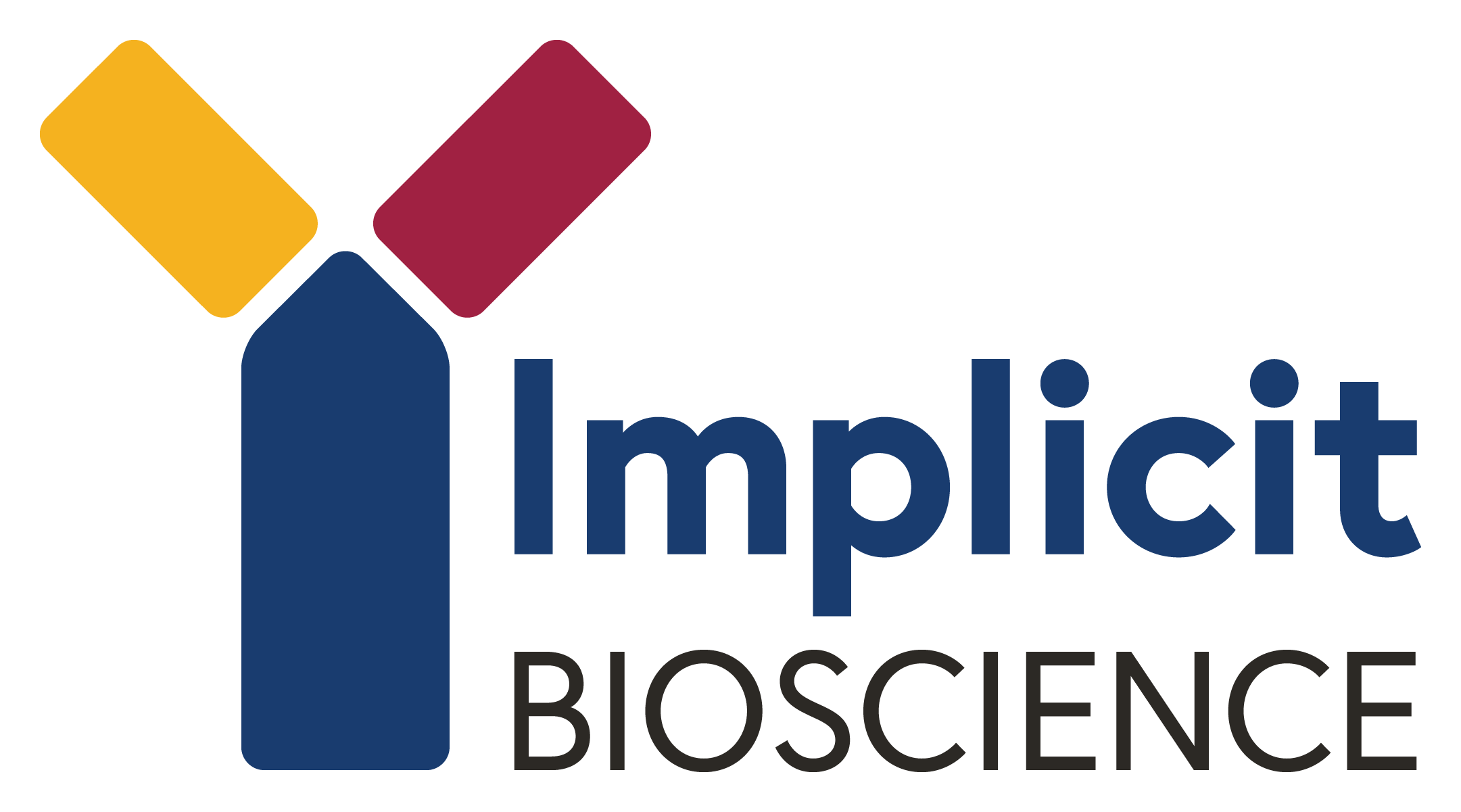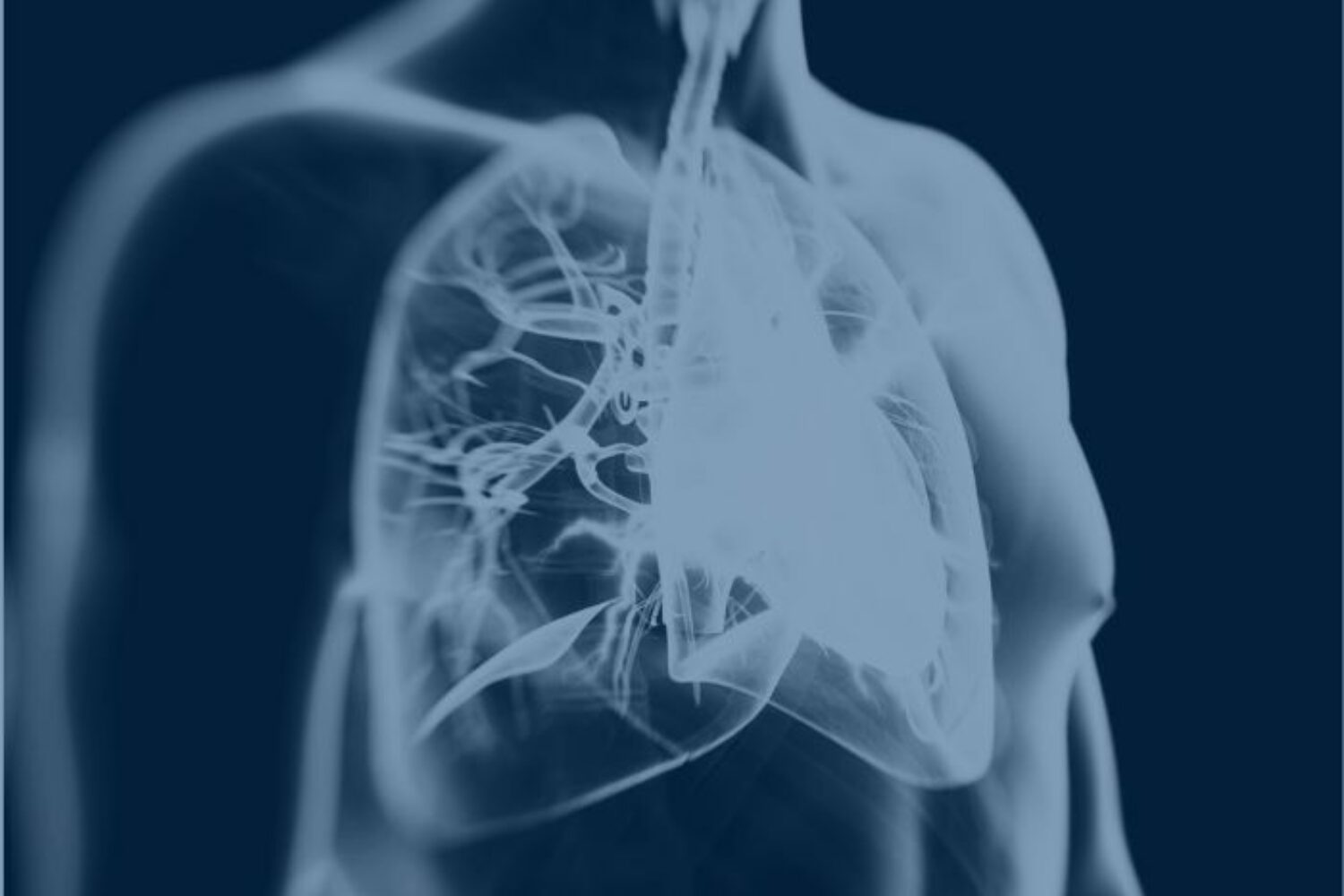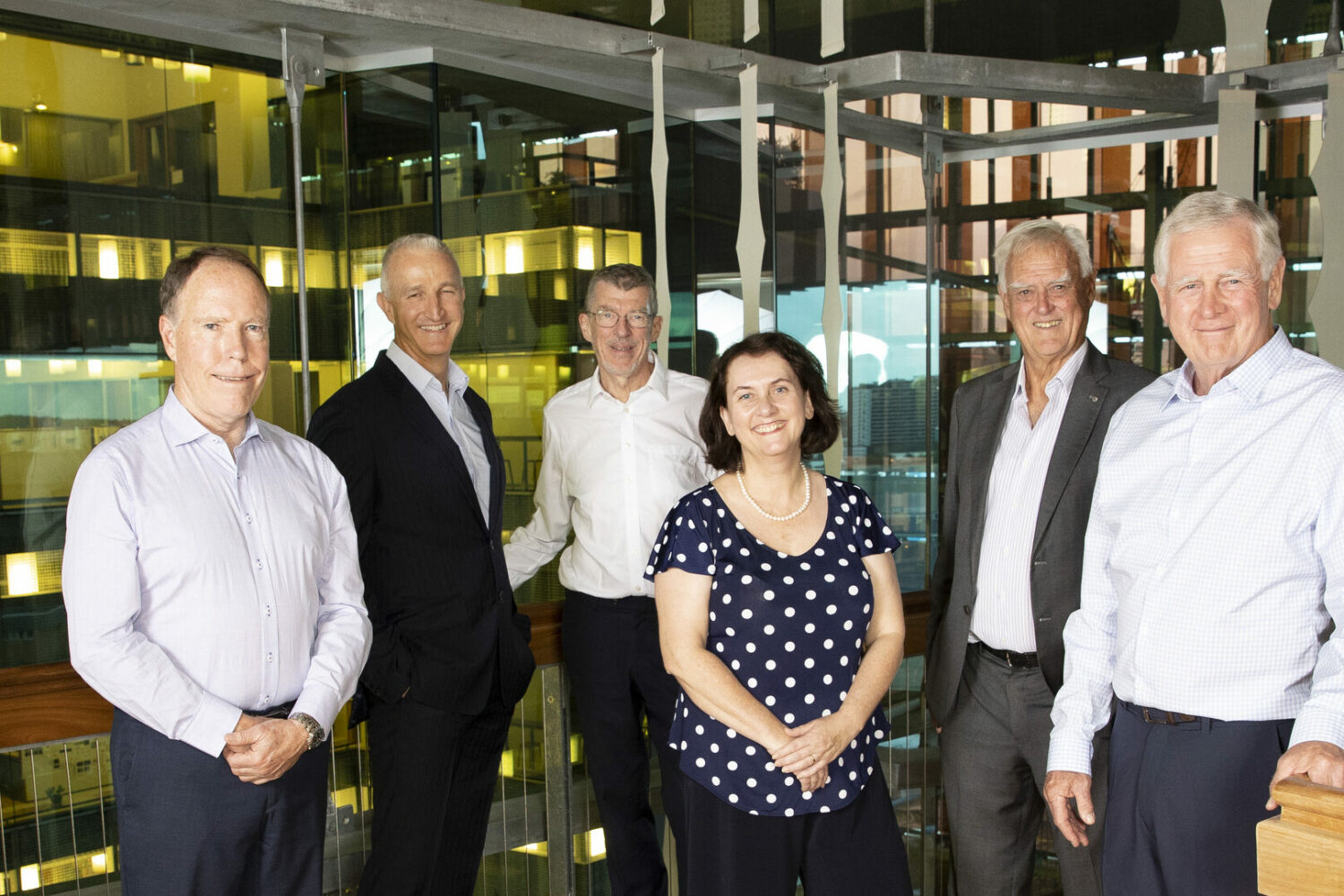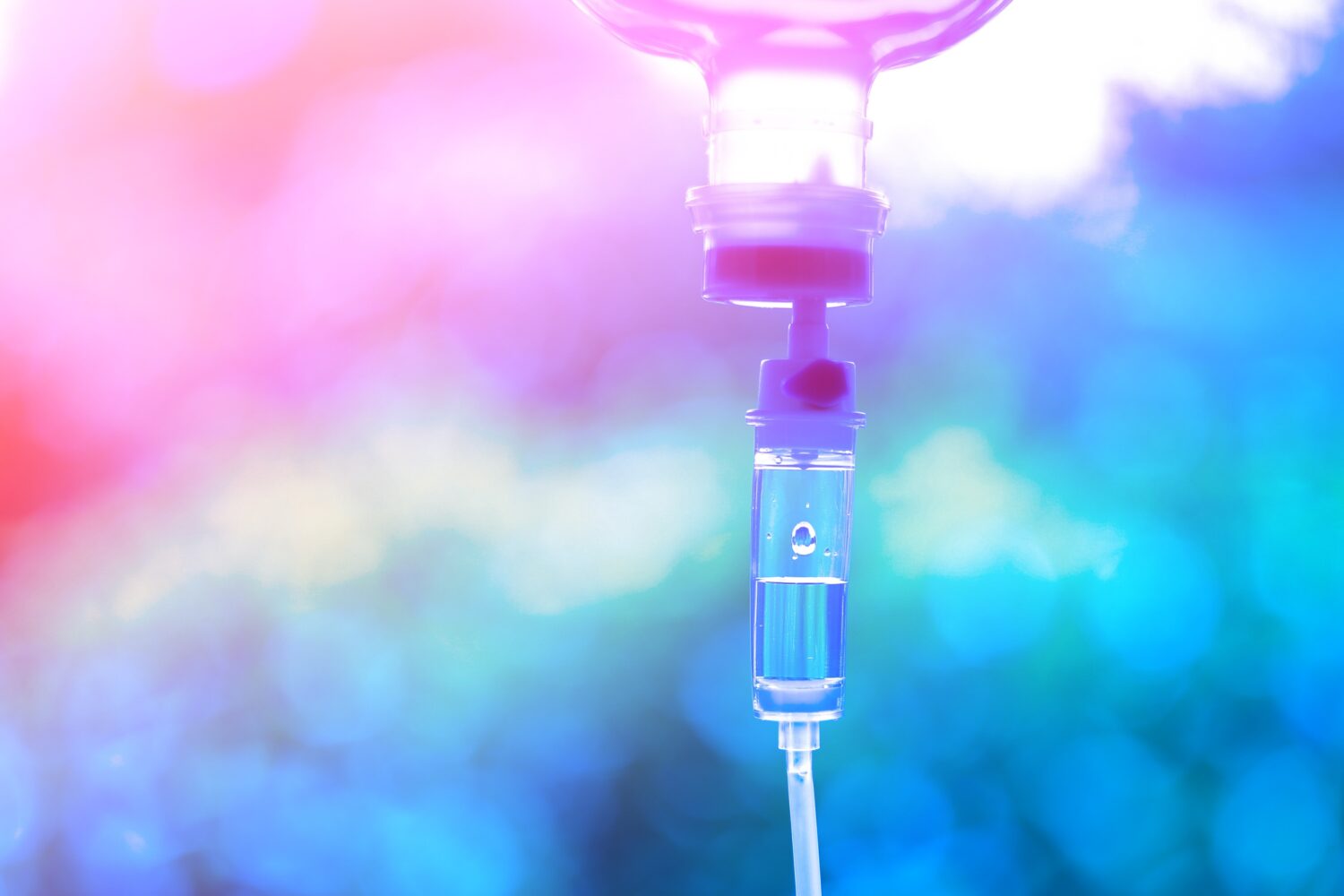FDA Approves Implicit Drug for Clinical Study in Heart Failure and First Patient Reported to be Responding Well to Treatment
Media Release: Implicit Uncovers Huge Heart Failure Risk
MEDIA RELEASE, 30 November 2023, Brisbane Australia: A study conducted by Implicit Bioscience of more than 90 million patient records over ten years from 56 US healthcare organisations has revealed an alarming heart failure incidence of up to 26% in the 12 months following a severe heart attack.
The American Journal of Cardiology this week published the study in which real-world data were analysed to assist the Company with estimating the potential impact of Implicit’s cardioimmunology program.
While rapid-response treatment of heart attack victims has improved their short-term survival rate, longer term consequences, including heart failure, are driven by the body’s immune response that can persist for many months. Implicit’s monoclonal antibody atibuclimab (IC14) has US FDA approval to commence clinical studies in patients with ST-segment elevation myocardial infarction and cardiomyopathy which are planned for early in 2024.
Atibuclimab selectively attenuates the inflammatory response that drives fibrosis, arrhythmias, heart failure and sudden cardiac death.
“In our detailed conversations with a number of international pharmaceutical companies we were surprised to find that there was some uncertainty about just how many patients suffer heart failure following the worst kind of heart attack. That prompted us to conduct the most comprehensive study ever undertaken of the subject in the largest health care market in the world,” said Implicit Bioscience CEO and MD, Garry Redlich.
“We all know that heart disease is the leading disease killer worldwide and accounts for more than a quarter of US deaths, and with nearly a quarter of a million of these serious heart attacks each year. there is still no drug approved to prevent heart failure in up to 60,000 patients who lose the battle in the following 12 months.”
The Company collaborated with Professor Ben van Tassell Pharm. D of the Department of Pharmacotherapy and Outcomes Science at Virginia Commonwealth University and Professor Antonio Abbate MD PhD, a leading cardioimmunologist at the University of Virginia who is working with Implicit on its clinical programs in the US and Europe.
Reference: van Tassell, et al., A Real-World Analysis of New-Onset Heart Failure After Anterior Wall ST-Elevation Acute Myocardial Infarction in the United States of America. The American Journal of Cardiology https://pubmed.ncbi.nlm.nih.gov/37981000/
New Precision Nuclear Medicine Tool to be Used with Implicit’s Heart Drug
Summary:
- New imaging technology allows clinicians to see immune cells that cause many heart diseases.
- Implicit’s antibody reprograms these immune cells and prevents damage, restoring heart function.
- This new technology will accelerate development of Implicit’s atibuclimab and pioneer a new era of precision cardiac medicine.
The development of new treatments in cardiology has been very difficult because of the heterogeneity of the patient population and the resulting variation in response to treatment.
Very recent scientific advances in immunology and precision medicine now allow targeted approaches to identify groups of patients who can be predicted to benefit from a particular treatment based on their specific immune profile, thus increasing the probability of clinical success required for drug approval.
New research from the Center for Cardiovascular Research and the Cardiovascular Precision Medicine Research Initiative at Washington University in St Louis positions Implicit Bioscience’s monoclonal antibody atibuclimab (IC14) at the forefront if this transformative field of cardioimmunology. This work builds on initial breakthrough discoveries by our collaborators at the Baker Heart and Diabetes Institute in Melbourne, Australia.
This research shows that a particular type of immune cell called a CCR2+ macrophage is causally linked to chronic disease progression following heart attacks. Macrophages lacking the CCR2 receptor are responsible for cardiac tissue repair after injury but are aggressively displaced by invading CCR2+ cells early in the disease. Using nuclear medicine, our collaborators in St Louis have created a tag for the CCR2 receptor that permits them to visualize these cells in patients using a PET/CT scanner.
“This new precision medicine tool will allow us to see the cells that cause the disease, select the patients most likely to respond to our drug and track the effect of atibuclimab on those cells in those patients”, said Implicit Bioscience CEO, Garry Redlich.
Anti-inflammatory drugs like corticosteroids that suppress the overall immune response cannot discriminate between the “bad” inflammatory immune cells that cause disease and the “good” reparative immune cells, and drugs that target just a single immune pathway are unable to retune the whole immune response.
In a new paper currently being prepared for publication, the Implicit Bioscience team shows that blocking atibuclimab’s target in these serious cardiology diseases profoundly and selectively rewires the genome of immune cells that cause these diseases. Everything downstream of these genes is thus deflected away from inflammation, fibrosis, scarring, muscle failure and electrical disturbance and back towards the normal repair and recovery functions that result in a regular heartbeat and efficient pumping of blood.
“Having a monoclonal antibody with this extraordinary capability is remarkable enough,” said Mr. Redlich. “But also having access to a technology that will allow our clinicians to both select patients most likely to benefit and to monitor the drug’s effectiveness could lead to a major transformation in how patients with inflammatory heart diseases are treated.”
Lavine, K.J. and Liu, Y. Visualizing inflammatory monocytes and macrophages in the human heart. Nature Cardiovascular Research, September 2023.
Lavine, K.J., et al. CCR2 imaging in human ST-segment elevation myocardial infarction. Nature Cardiovascular Research, September 2023.
– ENDS –
Promising New Cardiology Program in Heart-stopping Disease
Summary:
- Arrhythmogenic cardiomyopathy (ACM) causes sudden cardiac death in young adults and has no current drug treatment.
- Extensive study of Implicit’s antibody show that that it treats ACM and restores normal heart rhythm in animal models.
- The FDA has approved commencement of atibuclimab in ACM and designated it as an Orphan Drug for the disease.
Implicit Bioscience based in Brisbane (Australia) and Seattle (USA) has received approval from the US Food and Drug Administration (FDA) to commence clinical trials of its monoclonal antibody drug candidate, atibuclimab (IC14) in patients with a life-threatening cardiomyopathy.
Arrhythmogenic cardiomyopathy (ACM) is estimated to affect up to 100,000 individuals in the USA and up to 10,000 in Australia. It is frequently undetected until sudden cardiac death occurs in early adulthood during strenuous exercise. ACM accounts for around half of such incidents during football matches. Some examples of sudden cardiac death in sports may be seen in this video from the UW Medicine Center for Sports Cardiology.
ACM mostly results from genetic mutations that are found in other family members related to the patient and who are therefore also at high risk of suffering heart damage and SCD.
There is no drug treatment for ACM and patients receive an implanted defibrillator that detects potentially life-threatening ventricular arrhythmias and repeatedly shocks the heart until normal rhythm returns. This can happen at any time of the day or night and many ACM patients suffer consequential post-traumatic stress disorder. Heart transplant as the only long-term therapeutic intervention currently available.
Implicit Bioscience commissioned two independent studies using its proprietary monoclonal antibody as a treatment in an animal model of ACM at leading university laboratories in the USA. The FDA reviewed these data and Implicit’s proposed clinical protocol and has now issued a Study May Proceed letter permitting the commencement of atibuclimab dosing in ACM patients at the Washington University in St Louis Center for Cardiovascular Research early in 2024.
These and other studies in cardiology show that Implicit’s antibody treatment works by re-wiring the genome of the immune cells that cause heart damage triggered by acute injury such as a heart attack or resulting from chronic injury driven by genetic causes.
Implicit Bioscience CEO, Garry Redlich, commented: “Heart disease is the leading cause of death globally and the recent COVID pandemic has only made things worse. The new science of cardioimmunology now offers us the chance to transform this field by selectively altering the transcription of the genes of immune cells that underlie chronic inflammation and disease in patients.”
– ENDS –
Heart Attack Data Presented In Berlin
Implicit Bioscience will be in the spotlight this week at the world congress of the International Society for Heart Research in Berlin when Dr Daniel Donner presents the truly remarkable effects of the mouse equivalent of atibuclimab (IC14) on a severe (60 minute) heart attack.
Given as a treatment one hour after blood flow to the heart was restarted, the drug protected between 30% and 70% of critical heart functions. Using the latest technology, Dr Donner was able to show that the drug reprogrammed expression of more than a thousand genes in immune cells in the treated animals.
This result is exciting not only for our cardiology collaborators in Australia and the US, but also their colleagues leading our work in diseases of the brain, eye and lung. It is just the latest evidence supporting the proposition that IC14 targets a master regulator of the immune response.
IC14 featured in Medicine Journal
The US scientific journal Medicine has published a report of the first safety and biomarker study of IC14 in patients with ALS-MND. This research provided Implicit Bioscience with the very first look at the potential role of IC14 in dampening the inflammation that is thought to drive this devastating disease.
This study was conducted the Royal Brisbane and Women’s Hospital by Professor Robert Henderson, one of Australia’s leading neuromuscular clinicians. Key members of the Implicit Bioscience team led by CEO Garry Redlich and Chief Medical Officer Dr Jan Agosti are also listed as authors.
Dr Agosti said: “This was the first time IC14 had ever been dosed in patients with a neuromuscular disease and it provided the safety and biomarker data to support our current program of chronic IC14 dosing in patients with ALS-MND at the Healey Center at Massachusetts General Hospital. We are very grateful to the courageous patients who permitted Prof. Henderson and his clinical team to collect spinal fluid before and during the study which gave us the very first look at the effects of IC14 on the inflammatory conditions that drive this disease inside the nervous system.”
Implicit Bioscience CEO, Garry Redlich, said: “Professor Henderson and co-author Professor Pamela McCombe have long advocated for the study of the role of innate immunity in ALS-MND. Since the target of IC14 is regarded as a master regulator of innate immunity, we hypothesised that blocking this target in ALS-MND patients might slow the progression of this disease. It was great to get support from such respected clinical researchers in our home city. We are also very grateful for the visionary support funding from FightMND and its late founder Dr Ian Davis who dedicated the last years of his life to creating breakthroughs such as this. We all owe him and FightMND’s co-founder and patron Neale Daniher a great debt of gratitude for funding this work.”
IC14 (atibuclimab) is a first-in-class monoclonal antibody to CD14 that Implicit Bioscience is developing in neuroscience, cardiology, ophthalmology and critical care. Chronic dosing of IC14 in ALS-MND patients is in ongoing study in the USA. IC14 is also in clinical study in the USA in patients with COVID-19 illness.
Taming the Immune System in COVID-19 and other Serious Diseases
The following feature story was written by an experienced biotechnology market commentator in the US, following an interview with Implicit Bioscience CEO, Garry Redlich.
Implicit Bioscience Ltd was founded in 2004 with an unusual business plan. Instead of spinning out discoveries from a university lab, like many biotech companies do, it aimed to ferret out promising drugs that had already passed important milestones, but which were sitting neglected on a dusty shelf.
Spotting possible blockbusters that others had missed is a daunting task—harder than finding needles in haystacks. But even though Implicit is a tiny Australian company, it has a powerful team with the experience, knowledge and connections to pull it off. The founders included Professor Ian Frazer, inventor of the human papillomavirus vaccine, Gardasil, which has brought dramatic declines in cervical cancer, and Garry Redlich, a co-founder and former CEO of Australian biotech company Peplin, which successfully developed a drug against skin cancer.
And in 2009, the team found its elusive, potentially groundbreaking drug. Known as IC14, it is an antibody that acts on a master switch in the immune system. It offers the promise of dialing down immune system overreactions that cause serious illness and death in many types of acute injuries and neurodegenerative diseases. The drug has already shown tantalising preliminary results in small trials for acute lung injury and amyotrophic lateral sclerosis (ALS), and may finally bring hope for tackling the scourges like Alzheimer’s and Parkinson’s diseases.
But in the meantime, IC14 is coming to the forefront during the COVID-19 pandemic as a potential method of rescuing the sickest patients from the immune system overreactions that threaten their lives. Two trials at major medical centres, one led by the U.S. National Institutes of Health and the other by Quantum Leap Healthcare, are now underway to test whether IC14 can save these patients.
“Our small biotech company can make a major contribution to what we think is the most urgent need in this and future pandemics, which is to stop people dying when they reached the point where their immune systems have taken over,” says Redlich.
The story of IC14 and Implicit Bioscience begins back in the early 1980s in the lab of immunologist Richard Ulevitch at the Scripps Research Institute. Searching for biological targets that controlled the immune system, he found a receptor that acted as a switch for the entire system. It was boringly labeled as “Cluster of Differentiation 14” (CD14). The Ulevitch lab was focused on how CD14 helped control the immune response to pathogens, like bacteria and viruses, but later researchers have shown it also responds to stress signals from other cells, helping to explain how the immune system kicks in after trauma or injury, such as a car crash.
Ulevitch got financial support from Johnson & Johnson and The Rockefeller University to make an antibody that blocks CD14. Seeing its potential, the Seattle-based biotech company ICOS Corporation acquired the antibody from Scripps. ICOS further refined it and began testing it against a deadly condition called sepsis, which occurs when the immune system attacks the body after an infection.
But then, the drug, named IC14, began to fall through the cracks, for reasons unrelated to its own potential. Another sepsis drug ICOS was developing failed in clinical trials, and the company decided to get out of sepsis entirely. Then pharmaceutical giant Eli Lilly swooped in to acquire ICOS in 2007. Lilly was mainly interested in another drug, Cialis for erectile dysfunction, which had already reached blockbuster status with $1 billion in sales worldwide in 2005. Other ICOS programs were shut down.
IC14 could have been forgotten then. But Dr. Thomas Martin, a leading pulmonary and critical care professor at the University of Washington, was fascinated by its potential. He had heard of it in the Ulevitch lab while working during a sabbatical. Martin was able to get a supply of the drug from ICOS. He started testing it in patients on ventilators with acute lung injury. Those patients suffer when substances called cytokines produced by the immune system flood into the lungs after the injury and worsen the outcome. “He found that, remarkably, the drug caused all the bad things, like cytokines and suffocating fluids, to go down in these patients,” says Redlich.
That’s when Implicit caught wind of the drug, thanks to its founders’ connections. The company is headquartered in Brisbane, Australia, and also has an office in Seattle. In 2009, Redlich came to Seattle to hire for another project. One of the applicants was a former scientist at ICOS. “He told us we needed to come talk to Tom Martin,” Redlich says.
They did—and Martin showed them his results. “We looked at his data and we thought this is too good to be true,” Redlich recalls. Implicit quickly acquired the drug from Lilly and spent a couple of million dollars making larger amounts. The company worked with Martin to help design future clinical trials.
Since then, Implicit has begun to test IC14 in patients with ALS. So far, the ALS studies show that the drug is safe, even when given for more than a year, and that “there are very encouraging trends in slowing progression,” says Redlich.
Perhaps most exciting, however, is that the drug doesn’t switch off the immune system entirely; rather it seems to stop only the part that’s gone haywire while restoring normal functioning. In chronic neurodegenerative diseases like ALS, Alzheimer’s and Parkinson’s, “the handbrakes of the immune system come off,” Redlich explains. “With IC14 in our ALS patients, we are seeing those handbrakes go back on. We think IC14 has the potential to be the first drug that can do this.”
More evidence comes from experiments in mice that have been genetically engineered to lack CD14, the cellular receptor that IC14 blocks. “These CD14 knockout mice live long healthy lives,” says Redlich. Even mouse strains that normally get forms of Alzheimer’s or diabetes are protected from these diseases when they lack CD14.
So when the COVID-19 pandemic swept around the world in early 2020, Implict’s drug was a logical choice for trying to prevent the deaths of patients with the most severe disease. Under attack by the novel coronavirus, patients’ immune systems respond not just by making antibodies against the invader, but also by producing 20 to 30 types of cytokines as part of an immune reaction run amok. Those substances then wreak havoc in the lungs and other organs in a so-called cytokine storm.
Medical teams around the world thus figured that blocking the immune system overreaction could be an effective strategy. They raced to test a slew of already available drugs that target individual cytokines, such as the rheumatoid arthritis drug tocilizumab, which blocks a cytokine called interleukin-6. “There has been a lot of desperate throwing of very specific approaches up against the wall to see what will stick,” says Redlich.
None of these targeted drugs has shown much of a benefit. The problem, Redlich explains, is that each one stops only part of the immune system response, not the entire dangerous cascade.
“When patients are very sick, the only thing you can do that will work is to turn down the master switch on the immune system,” says Redlich. “We think IC14 may do that.”
One drug has reduced mortality by nearly 30%—an inexpensive steroid called dexamethasone that does suppress the immune response in general and which has been hailed as an important advance in treatment. Redlich, however, is convinced that IC14 can do much better. In fact, Quantum Leap Healthcare’s trial, called I-SPY, sets a minimum criteria of success as a 40% reduction in deaths, which Redlich hopes IC14 will meet. “But this will be a tough hurdle for IC14 to jump, since all patients in the I-SPY study are also now getting dexamethasone,” he said.
In addition, the evidence so far suggests that IC14 avoids one of the pitfalls of some current drugs that suppress the immune system or that block individual immune system components. By weakening the immune response, they open the door to infections from potentially deadly viruses, bacteria, or fungi. Indeed, some drugs for autoimmune diseases like multiple sclerosis or Crohn’s disease come with prominent “black box” warnings about the risk of serious opportunistic infections.
In contrast, what makes IC14 unique and promising is its apparent ability to dial down dangerous immune system overreactions while maintaining normal functions. So far, more than 200 people have been treated with IC14 for sepsis, acute lung injury, ALS, or pneumonia, Redlich says. “There has not been a single reported case of an opportunistic infection attributable to dosing with IC14.”
The timing thus presents a unique opportunity for investors willing to take risks—if they move quickly. Invest before the I-SPY results are known, and there could be enormous gains if the news is good. And given that IC14 has two shots on goal with COVID-19, that risk is mitigated by the much bigger NIAID study which will report results towards the end of the year. Given that IC14 appears to be a platform drug, as well as a promising product on its own, there also is plenty of longer-term potential for the drug in critical care and neurodegenerative diseases.
“After a decade of flying under the radar, IC14 is now out in prime time, giving hope in some of the toughest disease challenges facing medicine,” says Redlich. “Apart from this and future pandemics, we’re confident that IC14 will have a very important place in the immunotherapy toolbox as we get back to addressing the key diseases of ageing and lifestyle.”
4BC: Interview with Professor Peter Andrews
4BC Presenter, Neil Breen, spoke with Implicit Bioscience’s Chairman, Co-Founder and Director, Professor Peter Andrews, on the Great Queenslander segment today. Professor Andrews is also the Queensland’s first chief scientist and co-founder of Queensland’s Institute for Molecular Bioscience.
Listen to their interview here.
ABC TV News: IC14 COVID-19 US Clinical Trial
Implicit Bioscience today announced its lead drug IC14 will be tested in a Phase 2 clinical trial in COVID-19 patients in 10 to 15 hospitals across the USA – which commenced this week. The trial, called the COVID-19 and Anti-CD14 Treatment Trial (“CaTT” NCT04391309), is sponsored and funded by the US National Institute of Allergy and Infectious Diseases (NIAID), part of the US National Institutes of Health.
Journalist Dea Clark covered the story for ABC TV News on its local and national news bulletins.
Media Release: IC14 COVID-19 US Clinical Trial
Implicit Bioscience is pleased to announce the commencement of its IC14 COVID-19 clinical trials in the US.










